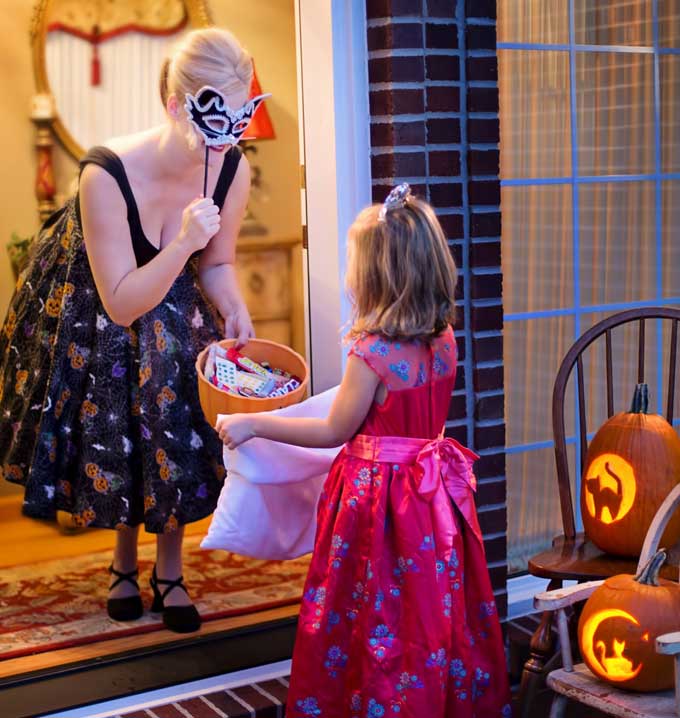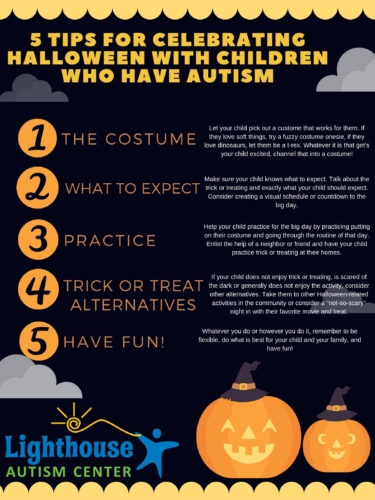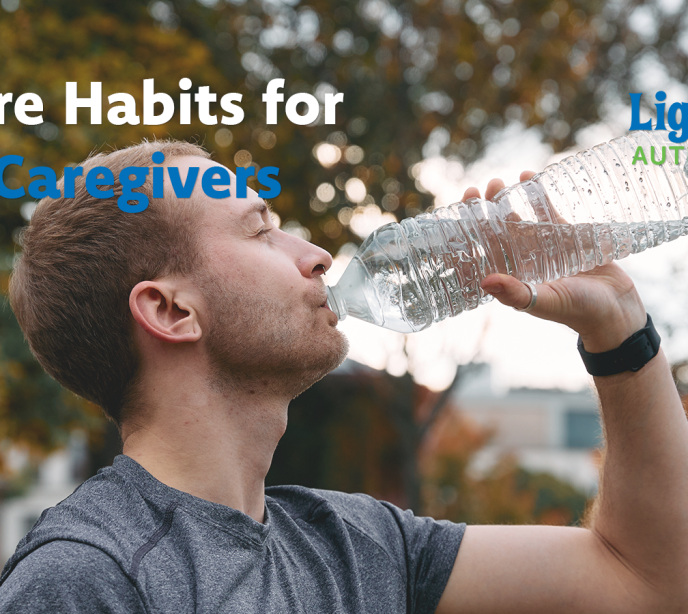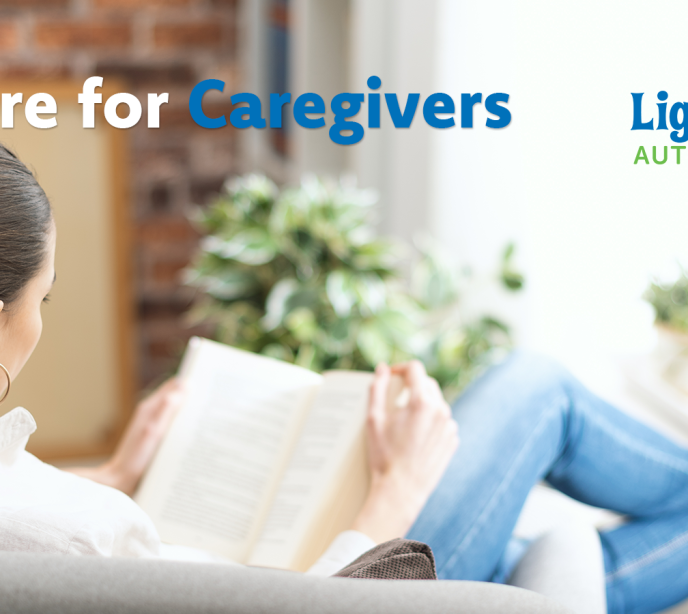Celebrating Halloween with Autism Spectrum Disorder
Tips for Celebrating Halloween with a Child on the Autism Spectrum
We look at tips on how parents and caregivers can safely celebrate Halloween with an autistic child. From costumes to candy, here’s what to do.
Halloween is an exciting time for children all over the country, but the excitement can also be overstimulating for some autistic children. It’s important to have alternatives to trick-or-treating with your child in case it is too overstimulating for them. Here are some Halloween safety tips and suggestions for celebrating with your child.

1. Choose the Right Costume
Selecting Halloween costumes for an autistic child can be tricky if it’s not done with the utmost consideration. Let your child pick out a costume that works for them. If they love soft things, try a fuzzy costume onesie; if they love dinosaurs, let them be a T-Rex. Whatever gets your child excited, channel that into a costume! Let your child practice wearing the costume at home to allow them to get used to it.
Helpful Resource: For more insights into sensory-friendly costumes, check out the Autism Society’s guide to Halloween costumes.
2. Prepare for What to Expect
Make sure your child knows what to expect. Talk about trick-or-treating and exactly what your child should expect. Tell them several times in advance. Consider creating a visual schedule or countdown to the big day. Create a visual to show or read books about trick-or-treating to familiarise them with the process. If your child is overwhelmed with change, gradually introduce activities and Halloween decorations.
Useful Tool: Visual schedules can be an effective way to communicate upcoming events. For more on creating visual supports, visit Autism Speaks.
3. Practice the Routine
One of the best safety tips for Halloween with a child on the spectrum is simply having a couple of practice rounds. Help your child practice for the big day by wearing their costume and going through the day’s routine. Enlist the help of a neighbor or friend and have your child practice trick-or-treating in a familiar environment. Use role play to practice receiving and giving treats.
Expert Tip: Find role-playing strategies and more tips from the Autism Parenting Magazine.
4. Explore Trick-or-Treat Alternatives
If your child does not enjoy trick-or-treating, or if you are choosing to stay home for personal reasons, consider other alternatives. Take them to other Halloween-related activities in the community or consider a “not-so-scary” night in with their favorite movie and treat.
Event Ideas: Check local community boards or websites like Eventbrite for family-friendly Halloween activities.
5. Focus on Enjoyment
There is no one-size-fits-all when it comes to Halloween activities for an autistic child. It looks different for every child on the autism spectrum, and you know your child best. Use your best judgment, and if you only stop at a few houses, that’s still a big win! Keep trick-or-treating short if needed. Consider letting siblings (who might want to stay out longer) go trick-or-treating with a family member or friend. Whatever you choose and however you do it, remember to be flexible, do what is best for your child and family, and have fun!

Tips for Passing Out Candy at Home
Although awareness around autism spectrum disorder is growing, there may still be some households who do not have experience with children on the autism spectrum. As an ABA Therapy provider, we encourage families to promote understanding and kindness in their communities. Here are some tips for supporting children with autism while passing out candy:
- For Nonverbal Children: Some children may not say trick-or-treat, please, or thank you: They may be nonverbal or have delayed speech.
- For Children Taking Multiple Pieces: This behavior might be linked to fine motor skills challenges.
- For Kids with Allergies: Some children may look disappointed due to food allergies. Always have non-food treats available.
- For Sensory Sensitivities: Be mindful of flashing lights or loud noises, as some children may be prone to seizures or sensory overload.
- For Non-Costumed Trick-or-Treaters: A lack of costume may indicate sensory processing issues.
- For Older-Looking Children: Some may be developmentally delayed, so patience and kindness are essential.
Please be patient, accepting, and kind. Make non-food items and candy alternatives for trick-or-treating available for children with allergies.
Tips for Making Halloween Allergy/Food Sensitivity Friendly
Many children face food allergies or oral motor challenges, making traditional candy an unsuitable option. The Teal Pumpkin Project, initiated by the Food Allergy & Research Education organization, aims to create an inclusive Halloween experience. Displaying a teal pumpkin or sign indicates that you offer non-food treats, making trick-or-treating accessible for all children.
Learn More: Discover the Teal Pumpkin Project at Food Allergy Research & Education.
Non-Food Treat Ideas:
- Glow bracelets
- Fidget items
- Stickers
- Mini notebooks
- Action figures or princess figurines
By incorporating these tips and resources, you can create a Halloween that is enjoyable and accommodating for your child on the autism spectrum, fostering inclusivity and understanding within your community. Happy Halloween!
Together, we can unlock your child’s potential
Related News

01/15/2026
10 Simple Self-Care Habits for Autism Caregivers
Caring for a child with autism is rewarding, but can also be demanding in ways that aren’t always visible. Between daily routines, therapy schedules, advocacy, and emotional labor, many caregivers find themselves running on empty, even as they continue to show up for their child every day. Earlier this year, we explored this reality in our blog post, The Power of Pause: Why Caregiver Self-Care […]

01/05/2026
The Power of Pause: Why Caregiver Self-Care Matters
As a new year begins, many families naturally reflect on what they hope the months ahead will bring—more peace, more balance, more support. At Lighthouse Autism Center, we’ll be taking a deeper look at the importance of self-care throughout the month of January, offering resources and encouragement to help caregivers start the year feeling supported and grounded. But […]

11/18/2025
Tips for Picky Eaters and Introducing New Foods
Autistic children are often labeled as picky eaters, but the truth is that they face a unique set of challenges that can make mealtimes extremely stressful. Discover helpful tips on introducing new foods into your child’s diet to make mealtimes more nutritional and enjoyable for everyone at the table. Autism and Food: Tips for Introducing […]


